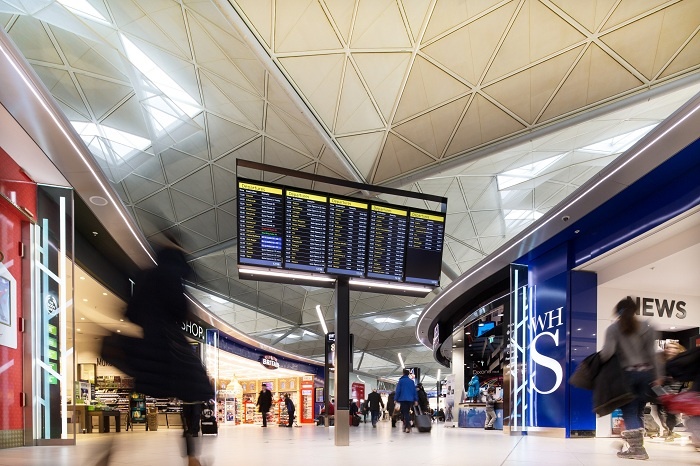
Profits up at Manchester Airports Group despite Brexit fears
Manchester Airports Group has reported adjusted EBITDA of £379.8 million for the year to March 31st, up 5.9 per cent on the previous year.
The increased was supported by a significant programme of investment in new facilities and infrastructure at Manchester and London Stansted, the group said in a statement.
The figures come as the operator saw passenger numbers increase 4.9 per cent, to 61.8 million, over the year.
MAG operates Stansted Airport, Manchester Airport and East Midlands Airport.
Chief executive, Charlie Cornish, said: “MAG continues to play a vital role in connecting different parts of the country to key global markets.
“The investments we are making in our facilities will allow them to play an even bigger role in the years to come.
“We are matching that capital investment with a focus on the experience that every one of our passengers has as they travel through our terminals, something we are looking to make as smooth as possible.”
Manchester Airport saw passenger numbers grow to 28.6 million last year, while Stansted followed close behind, with 28.4 million.
ADVERTISEMENT
Numbers were flat at East Midlands Airport, with 4.9 million passengers passing through during the year.
Referring to expansion plans at London Heathrow, Cornish added: “By improving international connectivity to different regions, MAG airports will do far more to secure economic growth and rebalancing across the UK than a third runway at Heathrow will.
“The government must now show an active commitment to supporting the future growth of airports like Manchester, London Stansted and East Midlands.
“To achieve this, the government must support the delivery of better transport links to airports across the country as part of an integrated plan to grow global connections from the north, Midlands and the south.”
MAG also warned continuing Brexit-related uncertainty was creating a more challenging outlook for the group in terms of economic growth and passenger demand.
Britain is currently set to leave the European Union on October 31st.
“Continued uncertainty about Brexit will ultimately act as a drag on the economy and damage consumer confidence.
“It is vital that the government finds a political solution to Brexit over the coming months to enable the country to move forward and to rebuild consumer confidence,” concluded Cornish.

